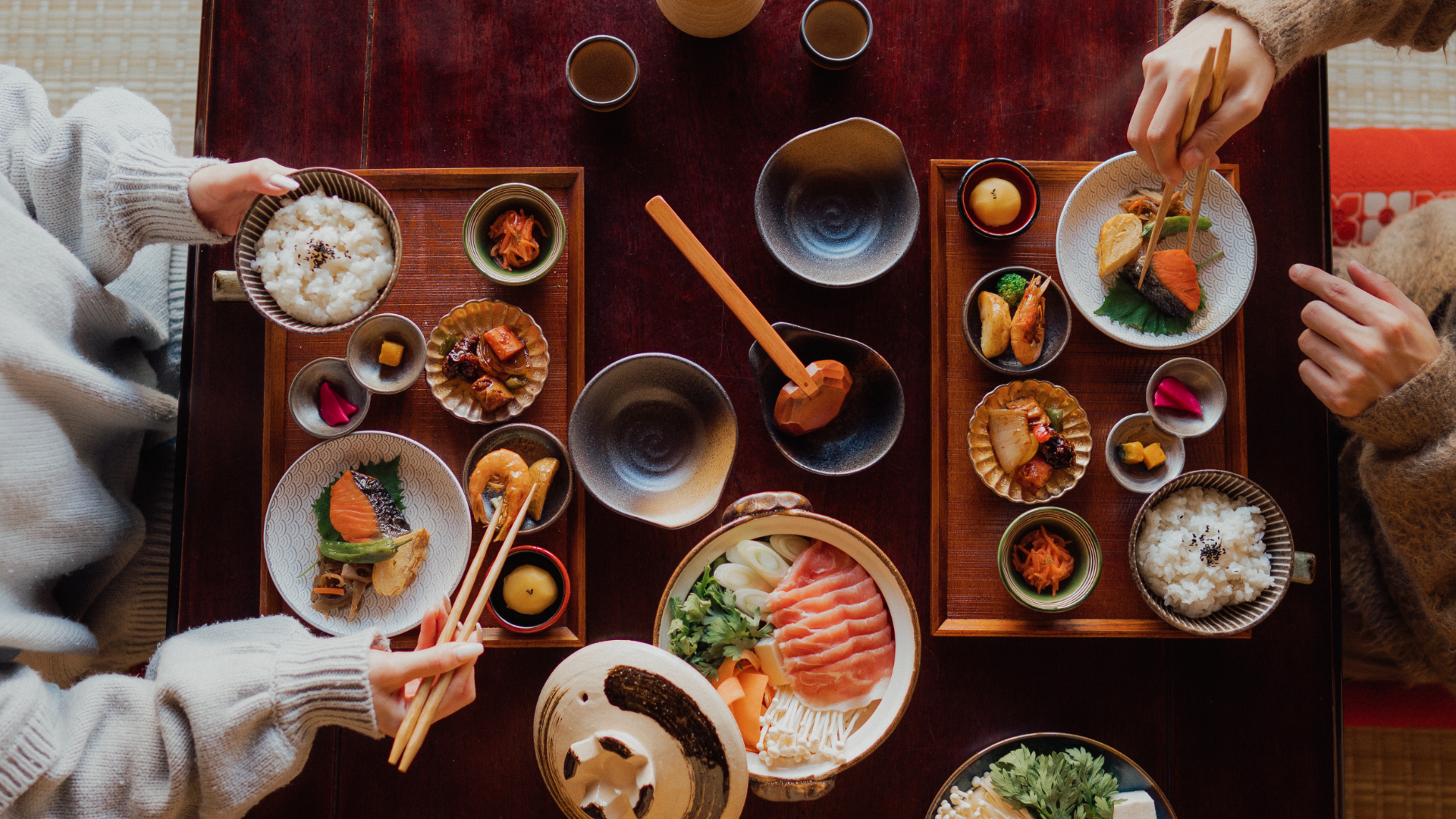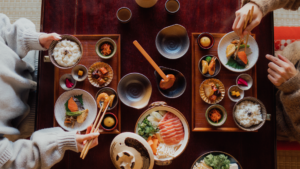Are you excited about your first trip to Japan but a little worried about the food, especially if you have dietary restrictions such as food allergies, vegetarianism, veganism, or halal requirements?
Rest assured! Japan is increasingly catering to diverse dietary needs, with more and more restaurants offering options for various restrictions. This article will provide you with valuable information and tips on choosing restaurants and navigating the Japanese food scene, ensuring a worry-free and enjoyable culinary experience.
By the end of this article, you will:
- Feel confident about enjoying your trip to Japan, even with dietary restrictions.
- Discover restaurants that cater to your specific needs.
- Learn essential communication tips for dining out.
- Understand the importance of preparation and information gathering.
- Fully embrace the delights of Japanese cuisine without any worries!
Let’s embark on a worry-free culinary journey through Japan together!
1. Dietary Restrictions? No Problem!
In recent years, Japan has seen a growing awareness of dietary diversity, leading to an increase in restaurants catering to various dietary restrictions. However, it’s still not perfect. Careful planning and information gathering are crucial to ensure a smooth and enjoyable dining experience.
The Importance of Preparation
- Restaurant Selection: Before your trip, research and create a list of restaurants that accommodate your dietary needs.
- Essential Japanese Phrases: Memorize basic Japanese phrases related to allergies and dietary restrictions in case English menus are not available.
- Reservations: For popular restaurants or those requiring special arrangements, making reservations in advance is recommended.
2. Allergy-Friendly Restaurants
Since 2019, Japan has mandated allergen labeling for seven specific ingredients: eggs, milk, wheat, buckwheat, peanuts, shrimp, and crab. This initiative allows people with allergies to make informed choices when dining out.
Allergy-Friendly Restaurant Search Websites
- Gurunavi: Offers a search function for allergy-friendly restaurants.
- Tabelog: Provides user reviews of restaurants, including information about allergy accommodations.
Essential Information to Convey
When dining at a restaurant, be sure to communicate the following:
- Allergens: Specify the exact ingredients you are allergic to.
- Severity of Symptoms: Explain the severity of your allergic reactions. If you have severe allergies, mention that you carry an epinephrine auto-injector (EpiPen).
Popular Allergy-Friendly Restaurants (Examples)
- Gonpachi: Offers a variety of menus catering to different allergies.
- AIN SOPH.: While primarily a vegan and gluten-free restaurant, they also prioritize allergy accommodations.
- Shinjuku Takano: This fruit parlor also offers a wide selection of allergy-friendly desserts.
3. Vegetarian and Vegan Restaurants
With the rise of health-consciousness and environmental awareness, the number of vegetarian and vegan restaurants in Japan is on the rise.
Definitions and Differences
- Vegetarian: People who do not consume meat or fish. Some vegetarians may consume eggs and dairy products.
- Vegan: People who abstain from all animal products, including eggs and dairy.
Growing Number of Options
Major cities like Tokyo and Kyoto are seeing a surge in vegetarian and vegan restaurants. You’ll find delicious choices like Shojin Ryori (traditional Buddhist cuisine) and creative vegetable-based dishes.
Vegetarian and Vegan Restaurant Search Websites
- HappyCow: A global directory of vegetarian and vegan restaurants.
- Vegewel: A website dedicated to vegetarian and vegan restaurants in Japan.
Recommended Dishes
- Shojin Ryori: This traditional Japanese cuisine uses vegetables and tofu, excluding all animal products.
- Vegan Ramen: Ramen made without any animal-derived ingredients. The broth is typically made from vegetables and kombu (kelp).
- Soy Meat Dishes: Soy meat offers a texture and flavor similar to meat, making it a popular plant-based alternative. It’s used in various dishes like hamburgers and karaage (Japanese fried chicken).
4. Halal Restaurants
For Muslim travelers, finding Halal restaurants is essential. Fortunately, Japan is witnessing an increase in Halal-certified establishments.
What is Halal?
Halal refers to food that is permissible according to Islamic dietary laws. It prohibits the consumption of pork and alcohol, and other meats and poultry must be processed in a specific manner.
Growing Number of Halal Restaurants
Major cities like Tokyo and Osaka now have a growing number of Halal restaurants. You can find Halal-certified establishments and restaurants with Muslim chefs, offering a worry-free dining experience.
Halal Restaurant Search Websites
- Halal Gourmet Japan: A website dedicated to Halal restaurants in Japan.
- Zabihah: A global directory of Halal restaurants.
Recommended Dishes
- Halal Ramen: Ramen made without pork bone broth or alcohol. The broth is typically made from chicken or seafood.
- Halal Curry: Curry made without pork or alcohol. It often features chicken or vegetables and is seasoned with spices.
- Kebab: This Middle Eastern meat dish is commonly found in Halal restaurants.
5. Other Dietary Restrictions
- Gluten-Free: Catering to people with wheat allergies, gluten-free options include rice flour bread and gluten-free pasta.
- Low-Carb: Suitable for those on a diet or with diabetes, some restaurants offer low-carbohydrate menus.
- Other Religious Restrictions: Restaurants catering to other religious dietary restrictions, such as Hinduism and Judaism, may also be available. It’s best to inquire beforehand.
6. Helpful Information and Tips
Communicating at Restaurants
If English menus are not available, these Japanese phrases can be useful:
- “Arerugii ga arimasu” (I have an allergy.)
- “~ wa taberaremasen” (I can’t eat ~.)
- “Bejitarian desu” (I’m a vegetarian.)
- “Biigan desu” (I’m a vegan.)
- “Hararu taiou no menyu wa arimasu ka?” (Do you have any halal options?)
Things to Check Beforehand
- Reservations: For popular restaurants or those requiring special arrangements, making reservations in advance is recommended.
- Allergy Confirmation: If you have allergies, contact the restaurant beforehand to confirm they can accommodate your needs.
- Opening Hours and Closing Days: Check the restaurant’s opening hours and closing days to avoid disappointment.
Utilizing Smartphone Apps
- Translation Apps: Google Translate or other translation apps can facilitate communication in Japanese.
- Restaurant Search Apps: Gurunavi and Tabelog are useful for finding restaurants that cater to dietary restrictions.
Conclusion
This article has provided a comprehensive guide for travelers with dietary restrictions, ensuring a worry-free and enjoyable culinary experience in Japan. From allergy-friendly to vegetarian, vegan, and halal options, you’ll find plenty of choices to suit your needs.
With careful planning and information gathering, you can fully embrace the delights of Japanese cuisine!


